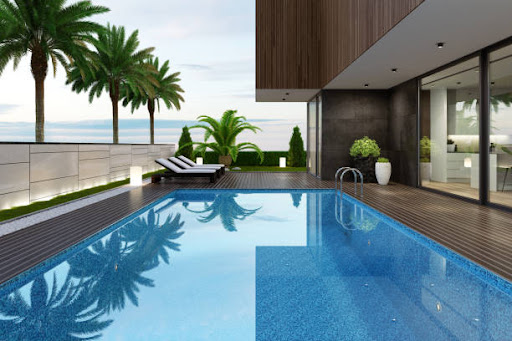
Here are the most considerate yet intimidating thoughts: How much value does a pool add to a home in Florida? Does it even at all add any value? Is it worth having a pool in my house? Much research indicates that it does—yes, you have heard it right. But there is no point in taking yes as yes without understanding its reasons, isn’t it? You can’t blindly believe a thing just because it works for some people; it might not work for you.
Insurance, repairs and maintenance coverage can be inflated—and there is no assurance that your property will sell at a lucrative price just because it has a pool. Calculate everything wisely before concluding anything, investing in a Pensacola house for its collection, or adding a pool to your existing property.
An essential part of the decision of whether to add a swimming pool to your house or not is the advice of the outlay against its anticipated value. Many other factors influence the topic “how much does a pool add to a home in Florida”, and in the following article, we will walk you through this trail.
Consider the Expense
First, let’s calculate what adding a pool will cost the owner of the house? There are palpable upfront installation costs that further vary based on the material required, shape and size of the pool.
Any average pool in Florida size approx. 14 ft by 28 28 ft. This is around 400 sq. ft, and the expense of a concrete inground swimming pool is approx. 30-50 thousand dollars. If you want to cut down the cost, you can select an above-ground swimming pool.
However, this is not a permanent feature of your house and probably won’t add any suitable value for the seller. The way to choose is to consider no more than 15-20% pay for the pool compared to the entire house’s value.
Consider maintenance cost
Pool repair and maintenance is not economical either. According to the surveys, the average maintenance cost of a pool is $1,200 to $1,800 annually. Besides, utility costs and repairs such as fuel, pool heater and water will surge the total price to $3,000 to $5,000 per year.
Besides, upkeep requires purchasing and adding chemicals into the pool to maintain the PH level and avert algae growth. You’re required to have the pool cleaned and vacuumed frequently during the summer season and buy things like leaf skimmers, attachable brushes and telescoping poles.
However, you can suggestively cut down costs by handling the maintenance instead of hiring professionals. You can also consider saltwater instead of chlorine pools.
Consider pool insurance
Another big thing to consider in installing a pool to your house is the cost to insure—your insurance premium would likely be hiked when you install a pool. According to the experts, most insurance policies often cover more than 10% of the pool replacement expense and cover all types of swimming pool accidents.
However, your homeowner’s insurance will cover the pool accidents; if a guest dies or gets injured, you will still be lawfully held liable if you don’t provide a secure and safe pool environment when you invite the guests to the house.
Suppose your broker contemplates the swimming pool as an external structure. In that case, you’re required to write it as one of the policies, says the real estate experts, perceiving the insurance policies needed to have a good-quality fence mounted around the swimming pool and eradicate any plunging board.
It is also wise to pay for the personal canopy procedure that provides accountability fortification beyond the confines of the homeowner policy.
How much does a pool add to the home?
However, the analytics paints a whole new picture if you consider the housing market. According to real estate professionals, the average property without a swimming pool sold out for $266,000.
These properties are approx. 2,000 sq ft. in size and were developed in 2008. Typically, a properly suitable property stays in the market for at least two months before selling.
When installing a private swimming pool, the average trading price surges to $292,000—a jump of almost $30,000. Well! Is that a sudden rise in price due to the addition of a pool? It is also crucial to consider that these properties were about 300 sq ft. larger than average. That spare space could be a bonus area, additional room, bathroom or bedroom.
Maybe or maybe not, this extra space could be responsible for the surged price. It is also essential to note that these properties are seated on the market for almost 76 days (approximately 2 weeks more than properties without the pool).
The accurate added worth of a private pool
If it doesn’t add any monetary value to the property, what value does it add? Well! Of course, the enjoyment of having your pool at home? During summer days, you and your family enjoy some time without having to go out to beaches and save on travel expenses.
Just make sure that you have calculated everything wisely before making this crucial decision. You can also get in touch with an experienced realtor to take suggestions on whether to invest in a private pool or not.
THSI-2710 / ZD24351




 POSTED BY
POSTED BY 

